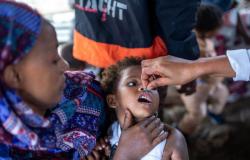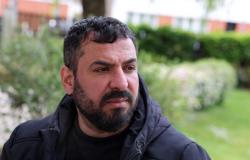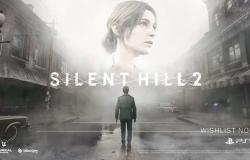Masters and teachers are concerned, because diseases such as measles and whooping cough are emerging again after years. To prevent bigger problems, 21 primary schools and child centers will ask new registrations whether the child has been vaccinated. In This is the Day (EO) a conversation about the usefulness and necessity of this question.
What do you think?
Do you think it is desirable for schools to ask whether children have been vaccinated?
number of responses: 3
scherm sluitenDo you want to delete this comment?
Annuleren Verwijderen
This is the situation
Schools in North Holland will ask vaccination questions
Are you going to register your child for a primary school or childcare center soon? Then you might be asked whether your offspring has been vaccinated. The time has already come in North Holland. There, 21 primary schools and child centers will ask parents of new students. The Tabijn Foundation, which includes the schools, believes it is its responsibility to reduce the risk of an unnecessary outbreak of measles or whooping cough.
As far as we know, Tabijn is the first school board in the Netherlands to ask this question when registering new children. What if the child is not vaccinated? Then this has no consequences: it can simply be registered. Refusing unvaccinated children is not possible at all. Board chairman Carla Smits says that this is not possible due to compulsory education. Mag je volgens de wet de vaccinatievraag stellen?
Asking whether a child has been vaccinated or not is a very sensitive matter. According to the privacy law, this is only allowed if there is a compelling and clearly communicated purpose in advance. This is what the PO Council, the umbrella organization for primary education, said in the Volkskrant. Moreover, it must always be possible to demonstrate the usefulness and necessity of that question.
Mazelen en kinkhoest
Because people have had their children vaccinated for generations, many diseases no longer occur or hardly occur in the Netherlands. From mumps to measles and from rubella to tetanus, they have been virtually banned from our country.
But in recent months, the diseases measles and whooping cough have become more common in the Netherlands. Four babies have already died this year from whooping cough and there was an outbreak of measles in the Eindhoven region. This concerns 26 unvaccinated children and two adults.
What do you think?
In which municipality was the vaccination rate the lowest in the Netherlands in 2023?
number of comments: 0
scherm sluitenDo you want to delete this comment?
Annuleren Verwijderen
The reason why diseases are returning is because more and more parents are choosing not to vaccinate their children against them. In the youngest age group (from 0 to 2 years), the vaccination rate fell to below 90% last year. That was the first time in decades.
The reason that fewer people are having their children vaccinated could be related to the corona period. Since that period, people have started to think less positively about vaccines, the RIVM investigated. However, the majority of parents are still positive about vaccination.
This is the discussion
Are schools allowed to ask the vaccination question?
By asking the vaccination question, schools try to reduce the risk of an outbreak of measles or whooping cough. But are schools allowed to ask this and perhaps even more importantly: is it desirable?
Roland Pierik is professor of legal philosophy at Maastricht University. In This is the Day (EO) he says he is not against schools asking the vaccination question, but he does not think it is the task of schools to do this.
“Het is de taak van de overheid om te zorgen dat de vaccinatiegraad hoog genoeg blijft, zodat deze discussie niet gaat spelen. De kinderopvang en het schoolplein zijn geen plekken om deze discussie te voeren. De politiek is aan zet. Je ziet nu vooral de anti-vax-ouders die heel erg uitgesproken zijn en zeggen dat vaccineren niet zou mogen. Maar uiteindelijk gaan ouders van kinderen die daardoor risico lopen, zich wel laten horen. Die discussie zal er komen. Ik vind wel dat je het mag vragen als school, als het doel is om het gesprek aan te gaan. Om een signaal af te geven naar de ouders: wij zouden het op prijs stellen dat u gaat vaccineren.”
Lawyer Caspar Janssens understands that the vaccination rate needs to increase, but does not think this is the way to achieve that. He points to the ‘General Data Protection Regulation’ (GDPR), which came into effect in 2016. He agrees with Pierik that the government has the most important role in this discussion.
“Mijn vriendin heeft kinkhoest, dus ik weet hoe ontzettend vervelend het is. Ik begrijp ook heel goed dat scholen dit vragen, maar AVG-technisch denk ik dat het niet kan. Tuurlijk, vragen staat vrij. Maar je mag het niet verwerken, dus dan hoef je het ook niet te vragen. Naar mijn idee zet je mensen ermee onder druk. Het gesprek is heel goed, ik denk dat we dat moeten voeren. Het is heel zorgelijk dat de vaccinatiegraad omlaag gaat. Maar daarvoor is het niet nodig om kleur te bekennen, dat je moet zeggen of je wel of niet gevaccineerd bent. De vraag is of je als school op aarde bent om deze discussie te voeren.”
Daniël Ponsen is chairman of the Primary Education Sector Board of the General Education Union and also a teacher in group 6. He sees that whooping cough in particular is becoming more common among children and that this is leading to unrest among teachers. Ponsen, like Pierik and Janssens, believes that the ball is in the government’s court to ensure a higher vaccination rate.
“We zijn er niet op tegen dat scholen deze vraag stellen, maar AVG-technisch is het een dun lijntje. Je mag het op zich vragen, maar je kan het niet registreren. Voor een risicoanalyse is het wel verstandig, zodat je er enigszins rekening mee kan houden. Het is primair een taak van de overheid. Anders gaan wij maatschappelijk toch op een plek zitten… Dan wordt het weer over de schutting van het onderwijs gegooid. Wij zijn geen artsen of verpleegkundigen, maar leerkrachten. We hebben een bepaald vak, daar zijn we voor opgeleid: dat is leerlingen lesgeven.”
This is the debate
Listen to our podcast
Are you curious about the entire conversation? This is the Day (EO)? Listen to the podcast below, in which presenter Margje Fikse talks to Roland Pierik (professor of legal philosophy), lawyer Caspar Janssens and teacher Daniël Ponsen.
We made this too
Hoe kan het dat zoveel kinderen last hebben van kinkhoest en longontstekingen?
Mag een kinderdagverblijf ongevaccineerde kinderen weigeren?
What do you think?
Will you have your child vaccinated? Why/why not?
-
Certainly not. I don’t trust that shit anymore, we are now really putting our trust for our health in the people who make money when we get sick?!? That’s just not right
… meer
Yours
8 -
zu
zussenrenr
31 maart 2024 · 22:41
No. After the whooping cough shot in my pregnancy (2016), I did the Miki study, so before it was introduced, I got epilepsy. I had no history of epilepsy, but a few days after the vaccine I was actually in the hospital. My pregnancy was no problem, and a few days after my admission my son was born critically ill. I received the injection at 34 weeks, had I received it during this time (22 weeks) So my son would no longer have lived. In other words, I took part in a study, but on not introducing vaccination for pregnant women. So I don’t think I can be called an anti-vaxxer. However, there is no longer any vaccination available here. damage has been discovered unfortunately..
… meer
Yours
0
Do you want to delete this comment?
Annuleren Verwijderen
Answer quiz question: In the municipality of Neder-Betuwe (Gelderland), only 51.6% of children in the youngest age group received the basic vaccination in 2023. This makes Neder-Betuwe the municipality with the lowest vaccination rate in the Netherlands, followed by Urk (61.6%) and Reimerswaal (66.1%). Source: VZ Info.
Tags: Primary schools students vaccinated
-

 8
8



